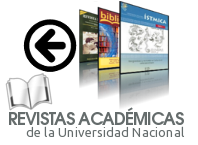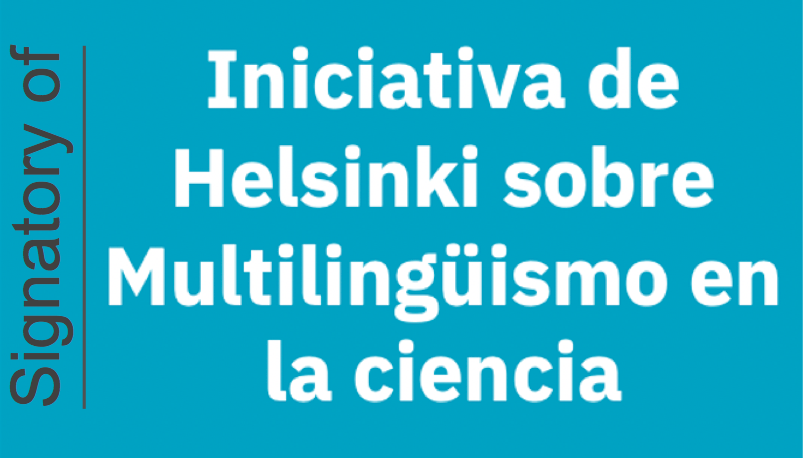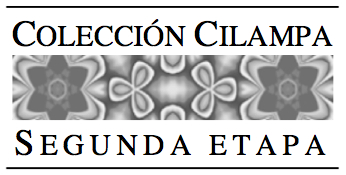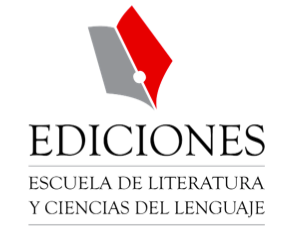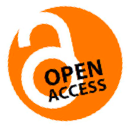Efectos colaterales de los exámenes orales por tribunal
DOI:
https://doi.org/10.15359/rl.2-68.8Palabras clave:
dominio lingüístico, metodología, exámenes orales, inglés como lengua extranjeraResumen
El estudio analiza las opiniones de un grupo de estudiantes de tres programas de Inglés como Lengua Extranjera, sobre el efecto colateral de los exámenes orales por tribunal en su dominio lingüístico y niveles de ansiedad, y la metodología y la toma de decisiones por parte del profesor. Mediante técnicas de muestreo intencional y diversas técnicas de triangulación, se detecta un considerable efecto colateral de estos exámenes en los niveles de ansiedad de los estudiantes y en la metodología de clase, así como en su dominio lingüístico y la toma de decisiones por parte del profesor.
Referencias
Alderson, Charles J. “Language Testing in the 1990s: How Far Have We Come? How Much Further Have We to Go?,” Anivan Sarinee, ed. Current Developments in Language Testing Singapore: SEAMEO, 1990: 1-26. DOI: https://doi.org/10.1093/applin/14.2.115.
Alderson, Charles J. and Diane Wall. “Does Washback Exist,” Symposium on the Educational and Social Impact of Language Tests. Language Testing Colloquium 14, 2 (1993): 1-23.
Bailey, Kathleen M. Washback in Language Testing. Princeton, NJ: Educational Testing Service, 1999.
Brown, James Dean, and Salamani Nodoushan. “Language Testing: The State of the Art,” International Journal of Language Studies 9, 4 (2015): 133-143.
Chen, Lih-Mei. “Washback of a Public Exam on English Teaching,” The Ohio State University, 2002.
Cheng, Lying, Yoshinori Watanabe, and Andy Curtis. Washback in Language Testing: Research Contexts and Methods. Manhwah, NJ: Lawrence Erlbaum Associates, Publishers, 2004.
Cohen, Louis, Lawrence Manion, and Keith Morrison. Research Methods in Education, 7th ed. New York: Routledge, 2011.
Coombe, Christine, Keith Folse, and Nancy Hubley. A Practical Guide to Assessing English Language Learners. Ann Arbor, MI: The University of Michigan Press, 2007.
Creswell, John. Research Design: Qualitative, Quantitative, and Mixed Methods Approaches, 4th ed. Thousand Oaks, CA: SAGE Publications, 2014.
Elaldı, Şenel. “Foreign Language Anxiety of Students Studying English Language and Literature: A Sample from Turkey,” Educational Research and Reviews 11, 16 (2016): 219-228. DOI: 10.5897/ERR2015.2507.
Fernández, Jean Carlo. “Board-Based (“Tribunal”) Oral Testing System Washback Effect: A Case Study at the University of Costa Rica, West Branch,” Unpublished term paper for the course IO-5600 Técnicas de Investigación, Universidad de Costa Rica (2018).
Filomena, Guisella. “The 2017 English Curriculum Reform in San José Night Academic High Schools: An Exploratory Study of Teachers’ Perceptions,” Final graduation project to obtain the Masters’ Degree in Second Languages and Cultures, Universidad Nacional, Costa Rica, 2017.
Gamboa, Roy, and Henry Sevilla. “Assessment of Listening Comprehension in Public High Schools of Costa Rica: The West and Central Pacific Case,” Proceedings of the 13th International Conference on Education, Honolulu, HA (2013): 1-45.
Gamboa, Roy, and Henry Sevilla. “The Testing of Listening in Bilingual Secondary Schools of Costa Rica: Bridging Gaps Between Theory and Practice,” Revista Actualidades Investigativas en Educación 14, 2 (2014): 1-23.
Gay, Larry R., Geoffrey E. Mills, and Peter Airasian. Educational Research: Competencies for Analysis and Applications, 9th ed. Upper Saddle River, NJ: Pearson, 2009.
Green, Anthony. “Washback in language testing,” International Journal of English Studies 13, 2 (2013): 39-51. DOI: https://doi.org/10.6018/ijes.13.2.185891.
Hazaea, Abduljalil Nasr, and Yayha Ameen Tayeb. “Washback Effect of LOBELA on EFL Teaching at Preparatory Year of Najran University,” International Journal of Humanities and Applied Social Science (IJHASS) 3, 3 (2018): 1-14.
Hernández Sampieri, Roberto, Carlos Fernández, and María del Pilar Baptista. Metodología de la investigación, 5th ed. Mexico D. F.: McGraw-Hill, 2010.
Jafarabadi, Mohammad Nases Shafiee, Nazila Zarghi, Vahideh Zolfaghari, and Mohammad Reza Kargozari. “The Effect of Washback on Reading Comprehension of Medical Students in English for Specific Purposes Classes,” Future of Medical Education Journal 4, 4 (2014): 28-31. DOI: 10.22038/FMEJ.2014.3604.
Levin, Kate Ann. “Study Design III: Cross-Sectional Studies,” Evidence-Based Dentistry 7, 1 (2006): 24-25. DOI: 10.1038/sj.ebd.6400375.
Menold, Natalja, and Kathrin Bogner. “Design of Rating Scales in Questionnaires,” GESIS Survey Guidelines (2016): 1-13. DOI: 10.15465/gesis-sg_en_015.
Messik, Samuel. “Validity and Washback in Language Testing” Educational Testing Service 13, 3 (1996): 1-18. DOI: https://doi.org/10.1177/026553229601300302.
Mogapi, Molefhe. “Examinations Wash Back Effects: Challenges to the Criterion Referenced Assessment Model,” Journal of Education and e-Learning Research 3, 3 (2016): 78-86. DOI: 10.20448/journal.509/2016.3.3/509.3.78.86.
Muñoz, Ana P., and Marta E. Álvarez. “Washback in an Oral Assessment System in the EFL Classroom,” Language Testing 27, 1 (2009): 1-17. DOI: 10.1177/0265532209347148.
Onyango, Moses Orwe. “Assessment and Teaching Science,” The International Journal of Science 15, 4 (2008): 255-259. DOI: https://doi.org/10.18848/1447-9494/CGP/v15i04/45709.
Osada, Eri. “A Teacher’s Decision-Making Process in an Elementary School EFL Education,” International Journal for 21st Century Education 3, 2 (2016): 15-24.
Pan, Yi-Ching. “Does Teaching to the Test Exist? A Case Study of Teacher Washback in Taiwan,” The Journal of ASIA TEFL 10, 4 (2013): 185-213.
Pan, Yi-Ching. “Learner Washback Variability in Standardized Exit Tests,” The Electronic Journal for English as a Second Language 18, 2 (2014): 1-30.
Razavipour, Kioumars, Sayyed Rahim Moosavinia, and Somayyeh Atayi. “Construct Ambiguity and Test Difficulty Generate Negative Washback: The Case of Admission Test of English Literature to Graduate Programs in Iran,” International Journal of Instruction 11, 4 (2018): 717-732. DOI: https://doi.org/10.12973/iji.2018.11445a.
Reynolds, Jessica. “An Exploratory Study of TOEFL Students as Evaluators of Washback to the Learners,” Research for the Master of Applied Linguistics, The University of Queensland (2010).
Rodríguez-Muñiz, Luis J., Patricia Díaz, Verónica Mier, and Pedro Alonso. “Washback Effect of University Entrance Exams in Applied Mathematics to Social Sciences,” PLOS ONE 11, 12 (2016): 1-18. DOI: 10.1371/journal.pone.0167544.
Rogier, Dawn. “Assessment Literacy: Building a Base for Better Teaching and Learning,” English Teaching Forum 3 (2014).
Shih, Chih-Min. “How Tests Change Teaching: A Model for Reference,” English Teaching: Practice and Critique 8, 2 (2009): 188-206.
Teemant, Annela. “ESL Student Perspectives on University Classroom Testing Practices,” Journal of the Scholarship of Teaching and Learning 10, 3 (2010): 89-105.
Tsagari, Dina. “Review of Washback in Language Testing: What Has Been Done? What More Needs Doing?”, Lancaster University, UK, 2007.
Tudor, Ian. The Dynamics of the Language Classroom. Cambridge: Cambridge University Press, 2001.
Turner, Carolyn E., “Professionalism and High-Stakes Tests: Teachers' Perspectives When Dealing with Educational Change Introduced Through Provincial Exams,” TESL Canada Journal 23, 2 (2006): 54-76. DOI: https://doi.org/10.18806/tesl.v23i2.55
Vinson, Kevin D., Rich Gibson, and Ross E. Wayne, “High-stakes Testing and Standardization: The Threat to Authenticity,” Progressive Perspectives 3, 2 (2001): 1-16.
Yunus, Melor Md, and Hadi Salehi, “The Washback Effect of the Entrance Exam of the Universities (EEU) on the Iranian Pre-university Students’ English Learning,” The International Journal of Learning 18, 7 (2012): 101-125.
Descargas
Publicado
Cómo citar
Número
Sección
Licencia
Principios básicos:
a) Los autores conservarán los derechos de propiedad intelectual de sus aportes o artículos;
b) Cada autor deberá indicar expresamente que ese artículo lo entrega, en calidad de exclusividad, a la revista LETRAS; y
c) La revista Letras se reservará el derecho de autorizar para fines académicos no lucrativos la reproducción y uso de ese material por parte de terceros, siempre que éstos indiquen expresamente la procedencia del artículo. Todo ello se postula en concordancia con la normativa de "Creative Commons Atribution License", recomendada.

This work is licensed under a Creative Commons Attribution-NonCommercial-NoDerivs 3.0 Costa Rica License.

